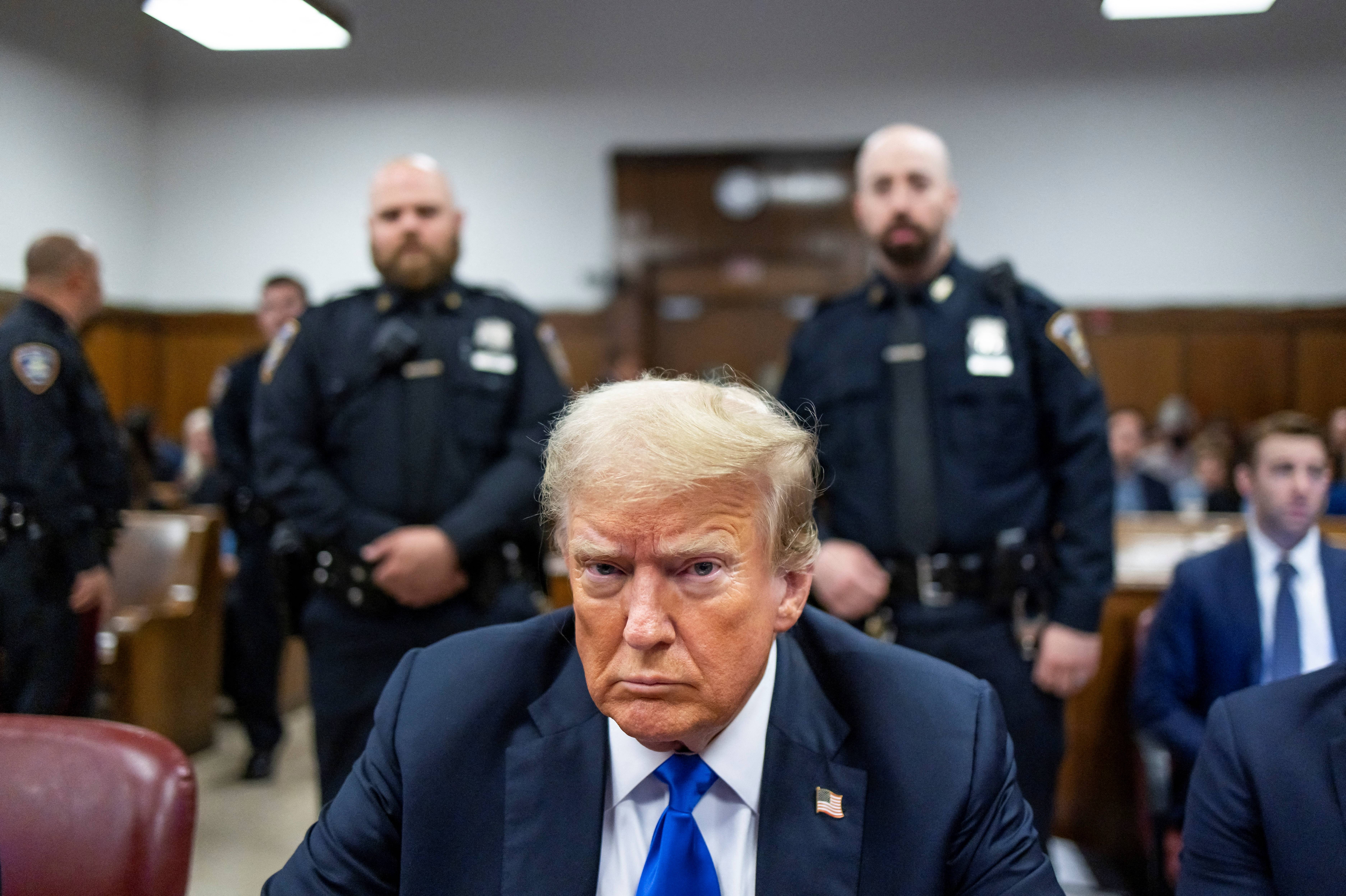Trump’s hush money sentencing will go ahead on Friday, Supreme Court rules
Trump is scheduled to face New York Justice Juan Merchan 10 days before his second inauguration
Your support helps us to tell the story
From reproductive rights to climate change to Big Tech, The Independent is on the ground when the story is developing. Whether it's investigating the financials of Elon Musk's pro-Trump PAC or producing our latest documentary, 'The A Word', which shines a light on the American women fighting for reproductive rights, we know how important it is to parse out the facts from the messaging.
At such a critical moment in US history, we need reporters on the ground. Your donation allows us to keep sending journalists to speak to both sides of the story.
The Independent is trusted by Americans across the entire political spectrum. And unlike many other quality news outlets, we choose not to lock Americans out of our reporting and analysis with paywalls. We believe quality journalism should be available to everyone, paid for by those who can afford it.
Your support makes all the difference.The Supreme Court will not stop Donald Trump’s sentencing in his criminal hush money trial, leaving the president-elect without any remaining options to block his imminent return to Manhattan criminal court.
Trump is scheduled to face New York Justice Juan Merchan at 9 a.m. Friday — 10 days before his second inauguration to the presidency. Merchan has signalled he will issue an “unconditional discharge” sentence that will not include jail time or fines.
The president-elect will appear virtually
On Wednesday, attorneys for the president-elect argued that the Supreme Court should intervene “to prevent grave injustice and harm to the institution of the Presidency and the operations of the federal government.”
Trump argued that the Supreme Court’s landmark decision on presidential “immunity” should apply to the evidence used against him at trial — and shield him from any criminal proceedings as president-elect.
In her one-page order on Thursday night, hours before Trump’s sentence, Justice Sonia Sotomayor said Trump’s arguments can be handled through the ordinary course of appeal.
The “burden that sentencing will impose on the President-Elect’s responsibilities is relatively insubstantial in light of the trial court’s stated intent to impose a sentence of ‘unconditional discharge’ after a brief virtual hearing,” she wrote.
Justices Clarence Thomas, Samuel Alito, Neil Gorsuch, and Brett Kavanaugh would have granted Trump’s application.

Prosecutors with the office of Manhattan District Attorney Alvin Bragg argued to the nation’s high court on Thursday that none of Trump’s claims “comes close to justifying” a pause in the proceedings, which have been repeatedly delayed through Trump’s presidential campaign.
Trump “makes the unprecedented claim that the temporary presidential immunity he will possess in the future fully immunizes him now, weeks before he even takes the oath of office, from all state-court criminal process,” prosecutors argued.
“This extraordinary immunity claim is unsupported by any decision from any court. It is axiomatic that there is only one President at a time,” they wrote.
Justice Juan Merchan and prosecutors have argued that Trump’s actions at the center of the case — in which he falsified accounting records to hide reimbursement payments to his former attorney for so-called “hush money” to an adult film star – have nothing to do with the “official” actions of the presidency that are protected by “immunity.”
That immunity “is strictly limited to the time of the President’s term in office,” prosecutors added.
On May 30, a jury of 12 New Yorkers found Trump guilty on 34 counts of falsifying business records after a six-week-long trial.
Prosecutors said Trump falsified records in connection with a scheme to silence adult film star Stormy Daniels, whose story about having sex with Trump threatened to derail his 2016 presidential campaign.
Trump’s reimbursements to his then-attorney Michael Cohen, who paid off Daniels, were falsely recorded in accounting records as “legal expenses.”
The former president insists he has done nothing wrong.

Join our commenting forum
Join thought-provoking conversations, follow other Independent readers and see their replies
Comments